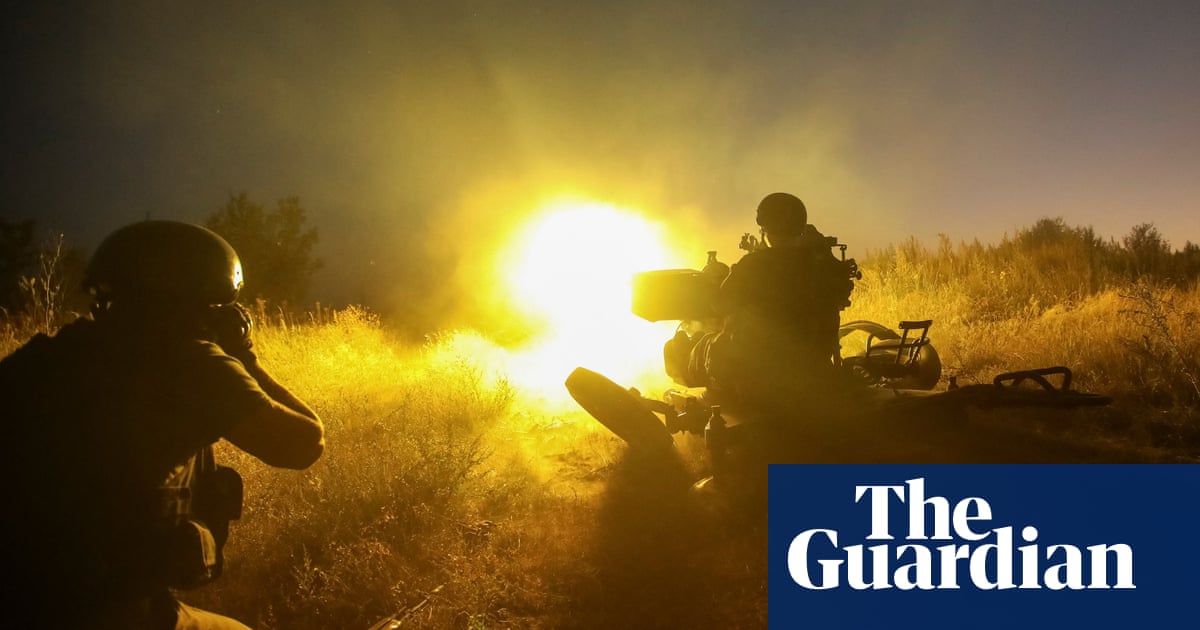Russian rocket strike kills 22 at a railway station in eastern Ukraine; Zelenskiy says Moscow has placed the world ‘on the brink of a radiation disaster’
* See all our Ukraine war coverage
Russia plans to disconnect Europe’s largest nuclear plant from Ukraine’s power grid, risking a catastrophic failure of its cooling systems, the Guardian has been told. Petro Kotin, the head of Ukraine’s atomic energy company, said Russian engineers had drawn up a blueprint for a switch on the grounds of emergency planning should fighting sever remaining power connections. “The precondition for this plan was heavy damage of all lines which connect Zaporizhzhia nuclear power plant to the Ukrainian system,” Kotin said.
At least 22 people have been killed and 50 wounded in a Russian rocket strike on a Ukrainian railway station, as the country marked a sombre independence day, and six months since Moscow’s invasion started. Ukraine’s president, Volodymyr Zelenskiy, said the rockets struck a train in a station in the town of Chaplyne, about 145km (90 miles) west of Donetsk in eastern Ukraine. “Chaplyne is our pain today. As of this moment, there are 22 dead, five of them burned in the car, an 11-year-old teenager died,” he said adding that the death toll could increase as rescue operations continue.
Zelenskiy says Russia has placed the world “on the brink of a radiation disaster”. “It is a fact that the Russian military made the territory of the largest nuclear power plant in Europe a combat zone … Now all of Europe and all neighbouring regions are under the threat of radiation pollution,” he said in a Wednesday evening address. Zelenskiy also called for th UN’s nuclear watchdog to take “permanent control” of the situation at the Zaporizhzhia nuclear power plant.
US president Joe Biden confirmed a further $3bn (£2.5bn) in military aid, including anti-aircraft missiles, artillery, counter-drone defences and radar equipment. US officials said the equipment, which will have to be ordered and will not be delivered for months or years, represented a longer-term investment in Ukrainian security. It is the biggest tranche of US military aid to date.
The UK prime minister, Boris Johnson, visited Ukraine for the third time since Russia invaded, urging the international community to “stay the course” in its support. Announcing £54m in support, he told Zelenskiy that Ukraine “can and will win the war”. Other senior politicians from across Europe travelled to Kyiv to show their support in person.
Moscow is making preparations to stage referendums in Russian-occupied areas of Ukraine, according to US intelligence. “We have information that Russia continues to prepare to hold these sham referendum in Kherson, Zaporizhzhia, and the so called Donetsk and Luhansk people’s republics,” spokesperson for Biden’s national security council, John Kirby, said. “We’ve also learned that the Russian leadership has instructed officials to begin preparing to hold sham referenda, particularly in Kharkiv as well. And these referenda could begin in a matter of days or weeks.”
Plans by Russian-backed authorities to try Ukrainian prisoners of war in Mariupol would be a “mockery of justice”, the US secretary of state spokesperson, Ned Price, said. “The planned show trials are illegitimate and a mockery of justice, and we strongly condemn them,” he said on Wednesday.
Russia has claimed that the slowing pace of its military campaign in Ukraine is deliberate, and driven by the need to reduce civilian casualties. Russian defence minister, Sergei Shoigu, said: “Everything is being done to avoid casualties among civilians. Of course, this slows down the pace of the offensive, but we are doing this deliberately.” Ukraine’s top military intelligence official, Kyrylo Budanov, said Russia’s offensive was slowing because of moral and physical fatigue in its ranks and Moscow’s “exhausted” resource base.
Britain is importing no energy from Russia for the first time on record. Figures from the Office for National Statistics (ONS) released six months after the start of the war found that in June the UK’s imports from Russia were down by 97% and stood at only £33m as sanctions took effect. Continue reading...
http://dlvr.it/SXBlxJ

Post a Comment